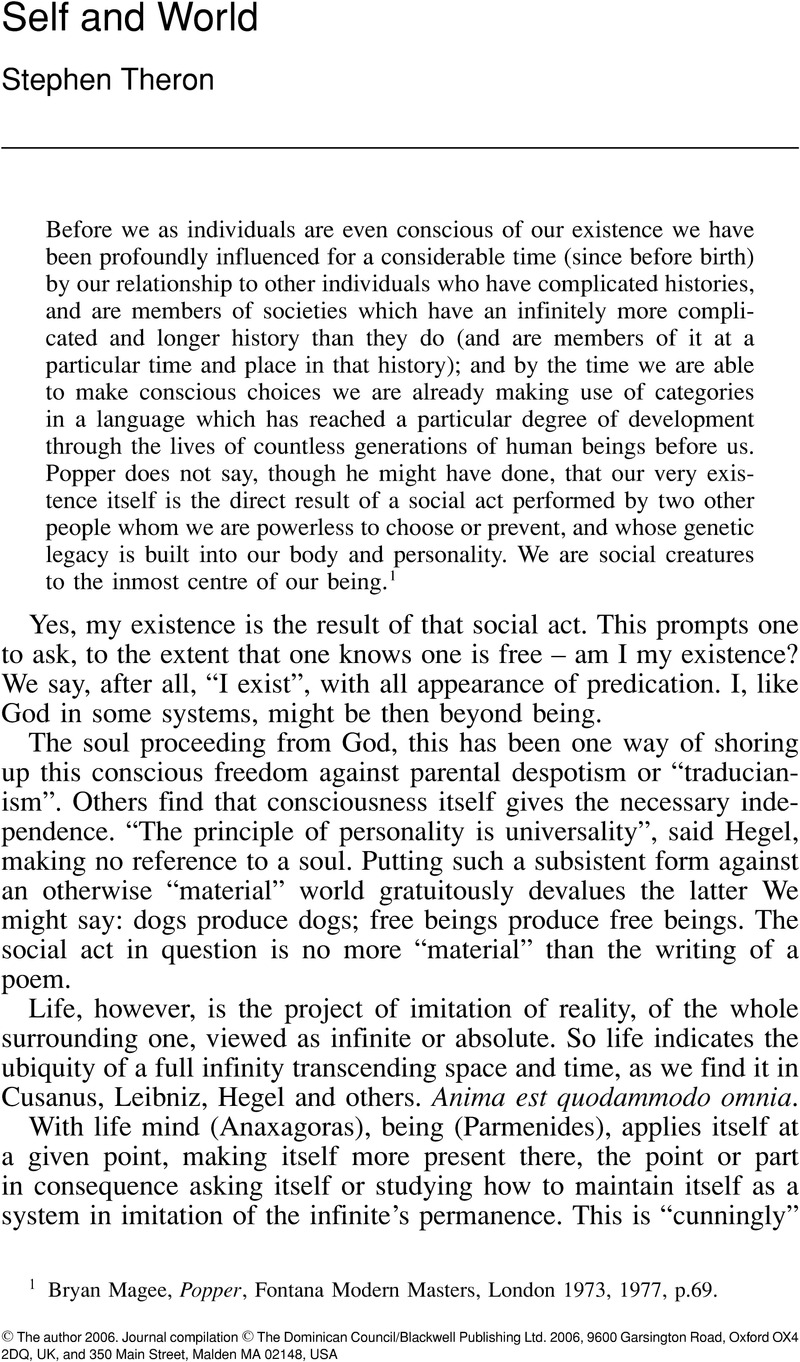No CrossRef data available.
Article contents
Abstract
An abstract is not available for this content so a preview has been provided. Please use the Get access link above for information on how to access this content.

- Type
- Original Articles
- Information
- Copyright
- © The Author 2006. Journal compilation © The Dominican Council/Blackwell Publishing Ltd 2006, 9600 Garsington Road, Oxford OX4 2DQ, UK and 350 Main Street, Malden, MA 02148, USA
References
1 Magee, Bryan, Popper, Fontana Modern Masters, London 1973, 1977, p.69Google Scholar.
2 This cunning of reason is a Hegelian notion (Encycl. Logic 209). But cp. Popper, Unended Quest, Fontana, Collins, London 1976, p. 179.
3 AV Psalm 104, Vulgate 103.
4 This was F. Inciarte's final interpretation of Aristotle as against Aquinas.
5 J.E. McTaggart, The Nature of Existence, II, 724.
6 G.W.F. Hegel, Encyclopaedia, Logic 31.
7 Ibid. 32.


